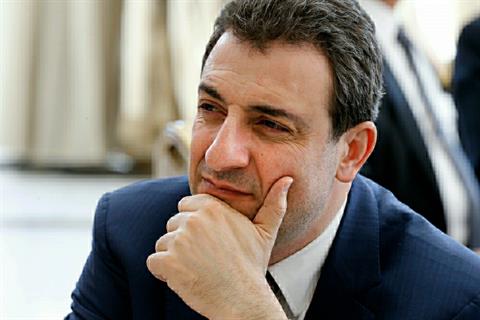 Lebanon’s public health ministry referred a case of contaminated Russian wheat imports to a branch of the public prosecutor’s office on Tuesday, the state news agency said, following a dispute with the economy ministry over test results showing unacceptable levels of a toxin.
Lebanon’s public health ministry referred a case of contaminated Russian wheat imports to a branch of the public prosecutor’s office on Tuesday, the state news agency said, following a dispute with the economy ministry over test results showing unacceptable levels of a toxin.
Public Health Minister Wael Abu Faour has said tests carried out by his ministry in February showed unacceptable levels of a carcinogenic substance, ochratoxin, in wheat imports from Russia.
This led Abu Faour last Wednesday to call for a ban on wheat imports, Lebanese National News Agency NNA reported, although no ban has been announced.
Abu Faour has now referred the case to a branch of the public prosecutor, the NNA said.
No information was given on the size of the problematic wheat shipment or the suppliers involved.
The ministry of public health said it tested a wheat batch from Russia and one from the United States on Feb. 24. Five of 12 samples from the Russian wheat showed 26 micrograms of ochratoxins per kilogram, breaching the Lebanese safety level of 5 micrograms per kilogram. The U.S. wheat was found to be safe.
Tests on one batch of wheat on Feb. 12 showed four of seven samples breached acceptable ochratoxin limits at 15 micrograms per kilogram. The origin of this wheat was not mentioned in the statement published by the ministry on March 16.
But the Ministry of Economy and Trade said on Friday its own tests on 13 samples of wheat stored in Beirut port found nothing wrong with them, adding it regularly tested on foodstuffs.
In a statement last week, the Ministry of Public Health said: “We regret that some of the batches of wheat which we did tests on may have gone into the Lebanese market. We hope that the Ministry of Economy, rather than denying the issue, looks for ways to track the wheat in the market, if possible, and work to prevent new shipments of wheat entering without being tested.”
Ochratoxins can be carcinogenic if they build up in the body, Abu Faour said in a statement.
Following the row, in a joint press conference on Monday the ministers of agriculture, public health and economy agreed to work together to improve wheat import and storage conditions.
Reuters

Leave a Reply
You must be logged in to post a comment.